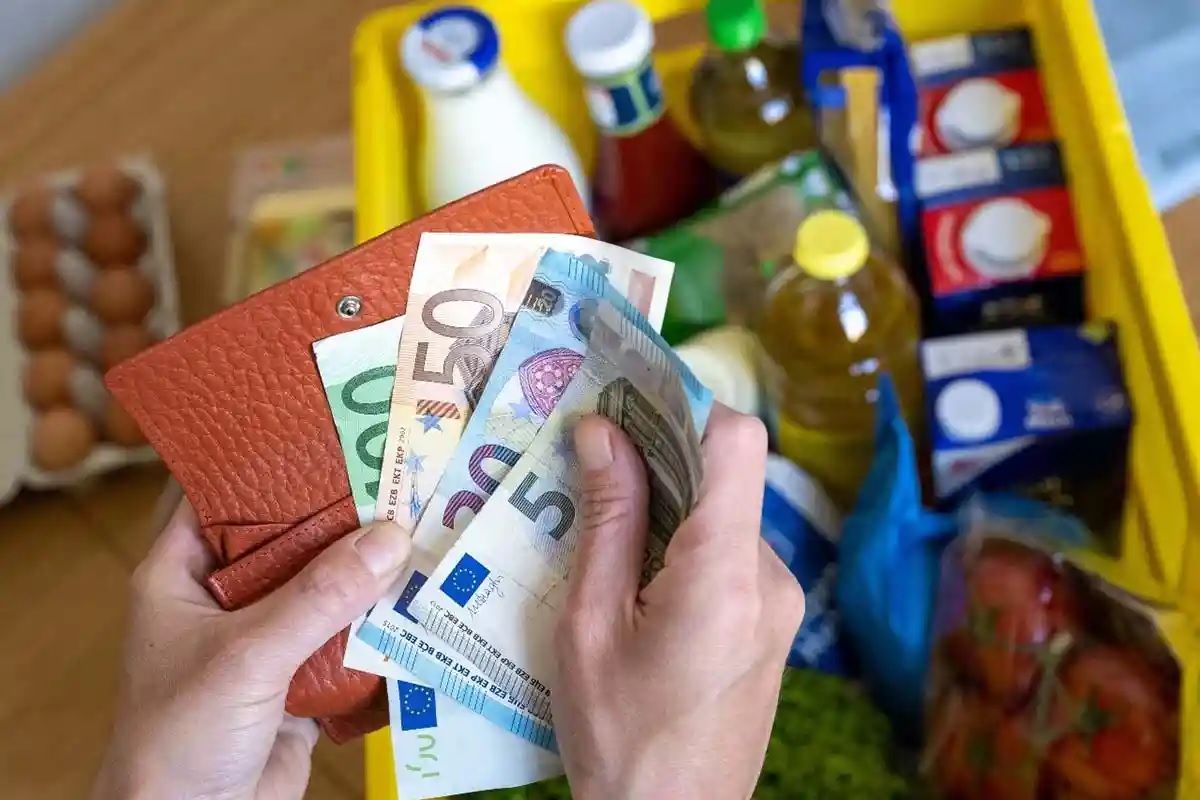When it comes to such massive sums as 60 billion euros, the budget crisis of the past few weeks can easily feel detached from our lives. How will the cost of living in Germany increase in 2024?
How life will become more expensive in Germany in 2024?
But when Olaf Scholz's coalition reached a last-minute agreement to find the 17 billion euros lost due to borrowing in 2024, it revealed many hidden shocks for consumers.
Apart from subsidy cuts for savings, the government is attempting to increase its revenue through new tax plans and a significant rise in the CO2 emission tax next year.
Here's an overview of some things that may become more expensive according to the new plans.
Airline tickets
The cost of flights has already increased over the past year due to rising energy prices related to Russia's invasion of Ukraine.
According to coalition budget plans, consumers may face another price hike, potentially only for domestic flights.
This is because the government plans to introduce a tax on paraffin fuel used in domestic aviation, which was previously exempt to support the aviation industry.
Food
Since July 2020, the VAT on food in restaurants and pubs has been only seven percent. This reduction was introduced to support the hotel business during the peak of the COVID-19 pandemic.
If you haven't noticed a significant decrease in prices since then, it's because many establishments have simply chosen to keep prices the same (or even raise them) to maintain higher profit margins.
However, starting January 2024, the VAT will be increased again to the regular rate of 19 percent, which experts believe restaurateurs will use as a reason to raise prices.
Groceries and toiletries
Packaged goods, likely from the next year, will also become more expensive due to the government's planned tax on single-use plastic.
From January 1, 2024, companies will be required to pay a fee into the single-use plastic fund managed by the Federal Environmental Agency (UBA), and they may well pass these costs on to consumers.
If this happens, you will have to dig deeper into your wallet when shopping at DM or the supermarket for products, and you will probably become acutely aware of how much plastic exists in the world.
Gasoline and diesel fuel
One of the primary ways to fund climate protection plans is the increase in the CO2 emission tax from €30 to €45 per ton. The emission tax will gradually rise each year, but initially, it was supposed to reach €40 only in 2024.
According to the German Automobile Association (ADAC), this will add an extra 1.4 cents to the price per liter of gasoline beyond what was initially planned. With the full increase of €15, a liter of gasoline will cost approximately 4.3 cents more than in 2023.
For drivers of diesel cars, the scenario is similar: the cost of a liter of diesel fuel will increase by a total of 4.7 cents due to the increase in the CO2 emission tax, which is a whole 1.6 cents more than initially planned.
Heating and electricity
Another area where the increase in the CO2 emission tax will be noticeable is in electricity bills, at least for the vast majority of people who use oil and gas for home heating.
According to the price comparison portal Check24, the increase in the tax to €45 per ton of carbon dioxide will add about €60 per year to the gas bill for the average household. The Verivox price comparison site, in turn, calculated that for households heating their homes with oil, the increase will be €96 per year.
Both websites used an average consumption of 20,000 kilowatt-hours per year as the basis for their calculations.
Additionally, the government is foregoing the planned subsidy of €5.5 billion for network service payments. This means that consumers will pay around 6.43 cents per kilowatt-hour of energy in 2024, more than twice the current 3.12 cents.
Even worse, the government is ending the limits on gas, electricity, and centralized heating three months earlier than planned. This means that consumers will be subject to fluctuations in energy prices from the beginning of the year, rather than in April.
Starting from March 1, consumers will also face a sudden increase in VAT on energy sources to the standard rate of 19 percent, rather than the current seven percent. According to Check24, this alone will add €217 to the annual expenses of the average household.
Overall, according to the portal's estimates, in 2024, the average family will spend around €2,537 on gas, which is 17 percent, or €370, more than in 2023.
Electric cars and solar panels
Alongside the reduction in climate change combat subsidies, the government will also cut some of its more environmentally friendly projects next year to save funds.
This includes generous grants for purchasing electric cars and subsidies for supporting solar energy. While electric cars may not necessarily become more expensive, it will mean that most people will pay more for them as they won't be able to claim a partial cost refund from the government.
The lack of support for solar energy could also lead to rooftop solar panel installations becoming more expensive. However, considering the expected skyrocketing electricity prices next year, it might be a reasonable move.
How else will the budget affect my wallet?
Depending on your situation, the latest budget announcement might be good news for your finances.
For benefit recipients, the planned increase in Bürgergeld by €61 will be maintained. This means that recipients of long-term unemployment benefits will receive at least €563 per month from next year.
However, Finance Minister Christian Lindner (FDP) stated that he wants to find €1.5 billion in savings in social security, which he could achieve by tightening sanctions and reducing the €75 monthly bonus for applicants undergoing training courses.
As for families, the planned increase in tax benefits for parents will continue, meaning the Kinderfreibetrag will rise to €6,384 per child in 2024 – €360 more compared to the current €6,024 per child.
Since an increase in the child tax allowance usually precedes an increase in the child benefit, there's speculation that an increase in the current child benefit of €250 is also imminent.
However, it's more certain that the Ministry of Family plans to merge various forms of parental financial support into a basic child benefit (Kindergrundsicherung) from 2025.
Despite financial difficulties, the government still plans to allocate an additional €2.4 billion for these purposes.
For workers, there is also good news: next year, the tax-free allowance for benefits will be increased from €10,908 to €11,784. This means that workers can earn almost twelve thousand euros – up to €1,000 per month – without paying a cent in taxes.
Related topics:
Based on the given text, here are two sentences that contain the phrase 'Life in Germany':
The budget crisis and the subsequent efforts to find funds are set to significantly impact life in Germany, with many costs set to rise in 2024.
With the increase in various taxes and the introduction of new fees, the cost of living in Germany is expected to become more expensive for many individuals, affecting various aspects of life in Germany.








